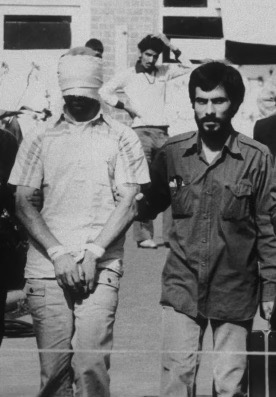
As the world remains focused on the ongoing conflict in Gaza, central to every story being reported from the conflict is the hostage crisis. This is exactly why Hamas kidnapped 240 men and women from 40 countries around the world. Victims included family members, fathers, mothers, grandparents and grandchildren. The elderly as old as 85 and children as young as three months were not spared from being kidnapped. But why? Because Hostage-Terrorism works.
“Terrorist groups who use the criminal act of abducting and holding individuals against their will to announce their agenda, raise their profile, negatively influence, disrupt and degrade political will and the decision-making ability of their declared adversary.
Their hostages are used for the purpose of making public demands, increasing public awareness of their cause, raising funds by extorting ransoms and or forcing concessions from nation states or other entities.”
Hamas, like their financiers, the Mullahs in Tehran, introduced the world to the original specter of Hostage-Terrorism with the 444-day US Embassy Hostage crisis in Tehran from 1979 – 1980. Nightly newscasts on the 66 Americans held, was a daily reminder of America’s inability to bring her citizen’s home. It cost Jimmy Carter his Presidency.

Constant media coverage provides the oxygen fueling the speculation and highlights the nonstop attention on the hostages. While it importantly raises awareness on the kidnapped victim’s plight – it also raises their perceived value as a bargaining chip for Hamas. This is a tactical win for kidnappers and strategic error for the countries trying to bring them home. Humanizing the hostages while minimizing their perceived worth to the hostage taker is critical. Having senior US government officials, including the President, speculate on pending hostage negotiations does not help the situation but can potentially sabotage it and hinder future hostage releases. A deal that is being brokered through third party intermediaries, including sheikhs, foreign diplomats, and nongovernment organizations is hardly an iron clad deal. The proposed hostage exchange can collapse with one headline media report that goes viral or the fog of war exchange of gunfire, an airstrike or missile launch that will turn a ceasefire into a conflagration.
It is a far cry from the perceived, “the US does not negotiate with terrorists” that while never official US hostage policy, making no concessions was. During my two years in Iraq from 2004-2006, the National Security Presidential Directiveon United States Citizens Taken Hostage Abroad – US Hostage Policy was:
“The U.S. Government will make no concessions to individuals or groups holding official or private U.S. citizens hostage. The United States will use every appropriate resource to gain the safe return of U.S. citizens who are held hostage. At the same time, it is U.S. Government policy to deny hostage takers the benefits of ransom, prisoner releases, policy changes, or other acts of concession.”
In 2014, the Obama Administration announced the exchange for an American soldier who deserted his post for five senior ranking Taliban and Al Qaeda leaders from the White House Rose Garden. He essentially announced to the world, “The US does negotiate with terrorists and the US makes concessions to terrorism…” In 2016, the Obama administration secretly arranged a plane delivery of $400 million in cash into Tehran on the same day Iran released four Iranian-American prisoners and formally implemented the nuclear deal with Iran. On September 12th 2023, it was announced that the US government released $6 Billion to Iran in an American-Iranian prisoner swap. Paying a king’s ransom to secure the release of hostages and achieve policy goals confirmed for Iran, the leading state-sponsor of terrorism, and their proxies like Hamas, that the US is willing to pay the modern-day Barbary States tribute.

In the early days of post Revolutionary War America, America faced hostage-terrorism in the form of North Africa Barbary pirates who captured foreign ships in the Atlantic Ocean and Mediterranean Sea. In 1793, Barbary corsairs captured 11 American ships and held 100 citizens captive. As a new nation with limited revenues, the United States had limited funds to pay these ransoms and annual tribute that followed to keep her ships and citizens unmolested at sea. In 1800, US Navy Commadore Bainbridge was given the ignominious task of carrying the tribute to the Dey (king) of Algiers. After years of paying for protection that proved fleeting, President Thomas Jefferson switched course and put the treasury allocated for the Barbary tribute into building a stronger US Navy fleet of warships. Led by the same Commodore Bainbridge in the First Barbary War, the exploits of Captain Presley O’Bannon’s mix of Marines and mercenaries were memorialized in the Marine Corps Hymn, “to the shores of Tripoli. It took a Second Barbary War to finally defeat the piracy threat and force the Dey of Algiers to submit.
America didn’t experience an act of piracy on a US flagged ship until the US Maersk Alabama was captured by Somali pirates in 2009 nearly 200 years later. In a bit of historical irony, Captain Richard Phillips was rescued by Navy SEAL Snipers positioned on the fantail of the USS Bainbridge.
Combatting Hostage Terrorism requires confrontation not conciliation better kept in clandestine shadows vice press conferences. It is time to get back to historical precedents guiding our current hostage policy and not pandering to wishful thinking. Hope that paying millions in ransoms yesterday won’t lead to paying billions today is a failed strategy and puts every American passport holder at risk like the 10 Americans held by Hamas in Gaza. Making concessions to terrorism only encourages more of it. Pandering to an enemy who still calls America the Great Satan only emboldens more acts of terrorism.
Commander Dan O’Shea (SEAL) USN (ret) established and served as the Coordinator of the Hostage Working Group US Embassy (Baghdad) Iraq from 2004-2006. He arrived at the height of the Al Qaeda inspired hostage-taking crisis where 40-50 foreigners were being kidnapped every month. Managing the inter-agency coordination of more than 400 hostage-taking incidents, kidnappings were in single digits with only one hostage incident in the final month of his tour.